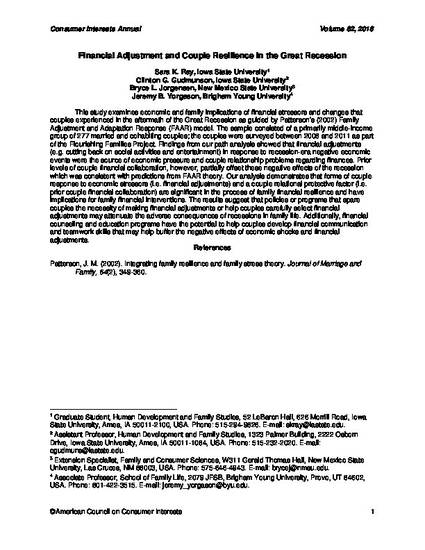
This study examines economic and family implications of financial stressors and changes that couples experienced in the aftermath of the Great Recession as guided by Patterson’s (2002) Family Adjustment and Adaptation Response (FAAR) model. The sample consisted of a primarily middle-income group of 277 married and cohabiting couples; the couples were surveyed between 2008 and 2011 as part of the Flourishing Families Project. Findings from our path analysis showed that financial adjustments (e.g. cutting back on social activities and entertainment) in response to recession-era negative economic events were the source of economic pressure and couple relationship problems regarding finances. Prior levels of couple financial collaboration, however, partially offset these negative effects of the recession which was consistent with predictions from FAAR theory.
Available at: http://works.bepress.com/clinton_gudmunson/13/

This presentation is published as Ray, S.K., Gudmunson, C.G., Jorgensen, B.L., Yorgason, J.B, Financial Adjustment and Couple Resilience in the Great Recession. Consumer Interests Annual 62(2016). Posted with permission.